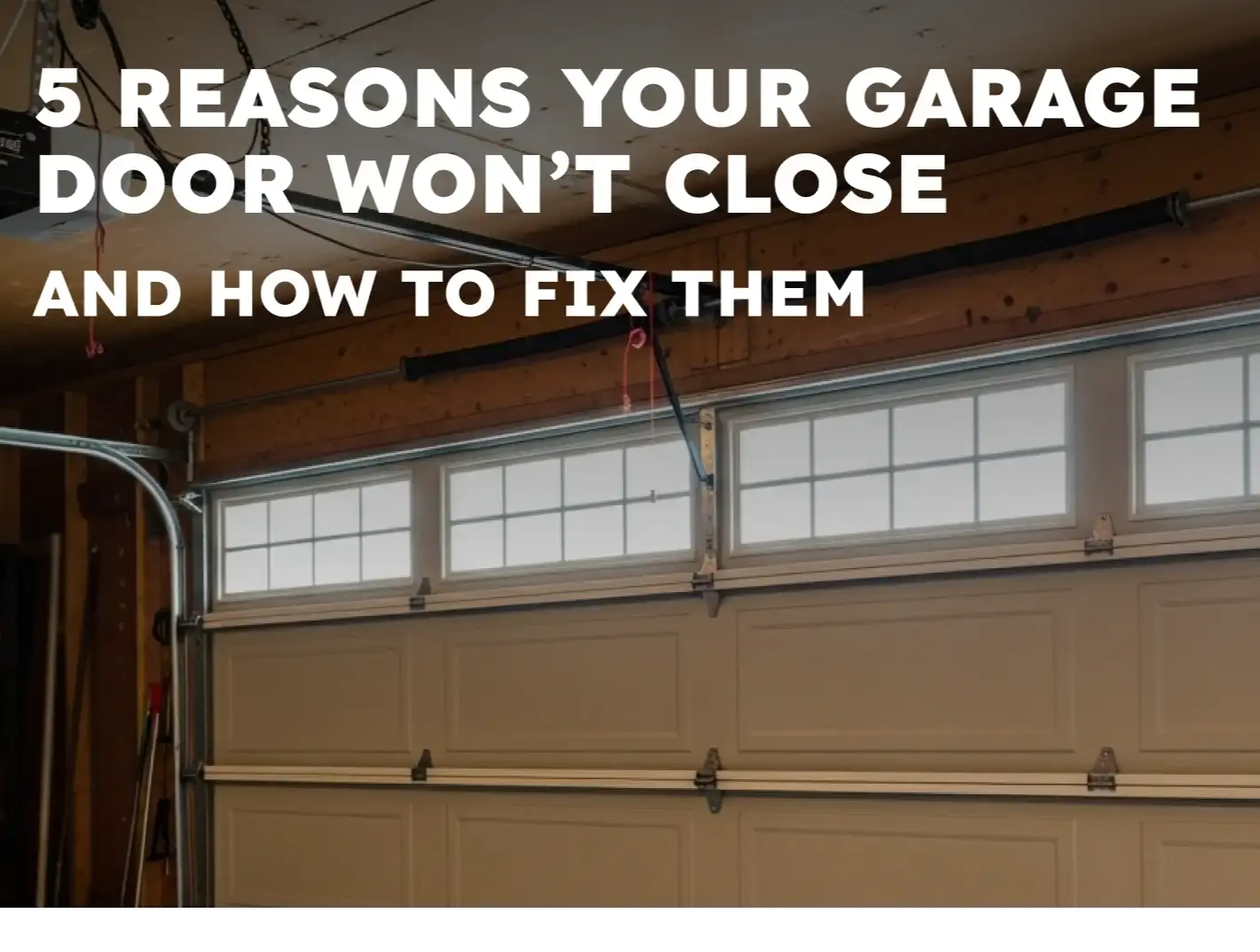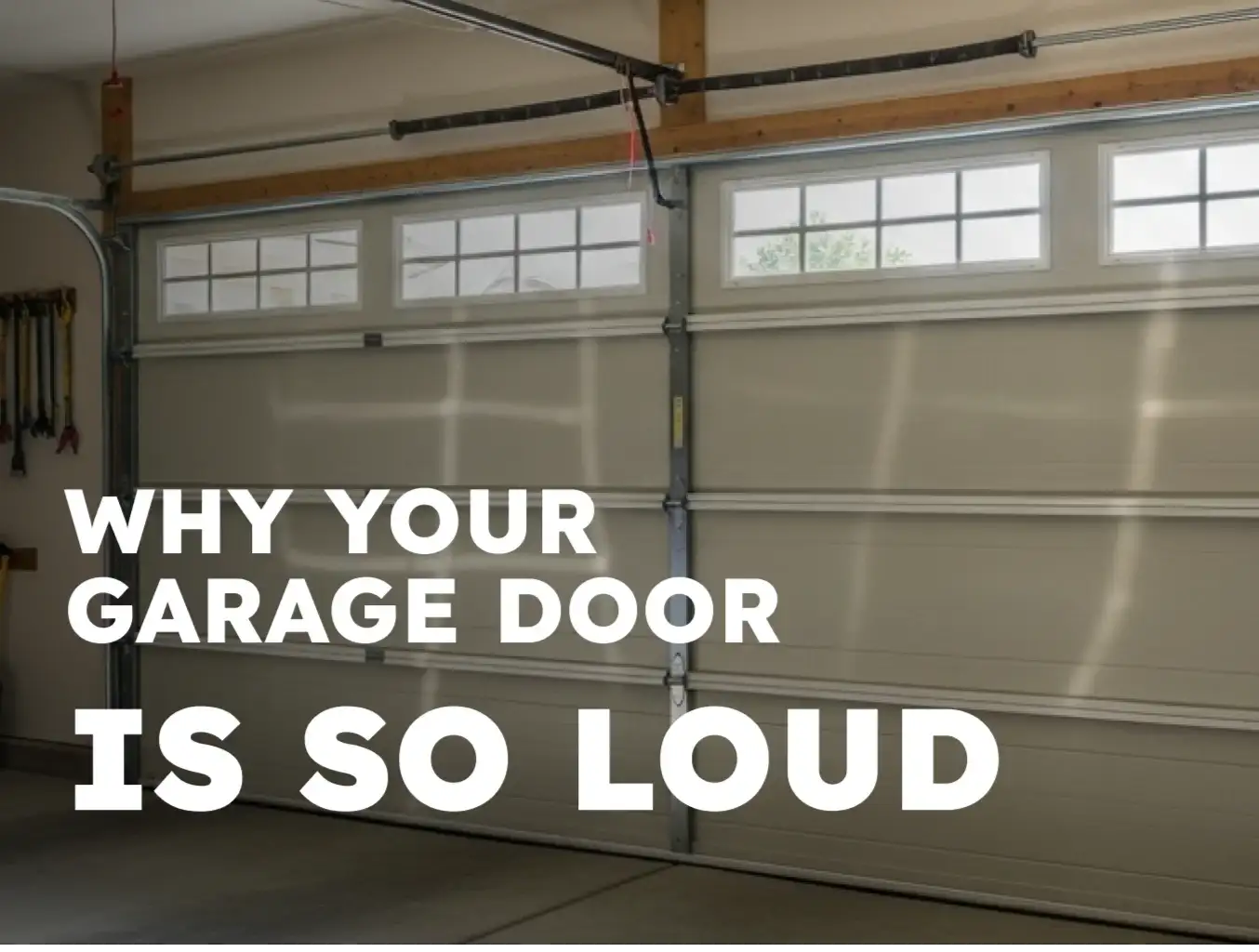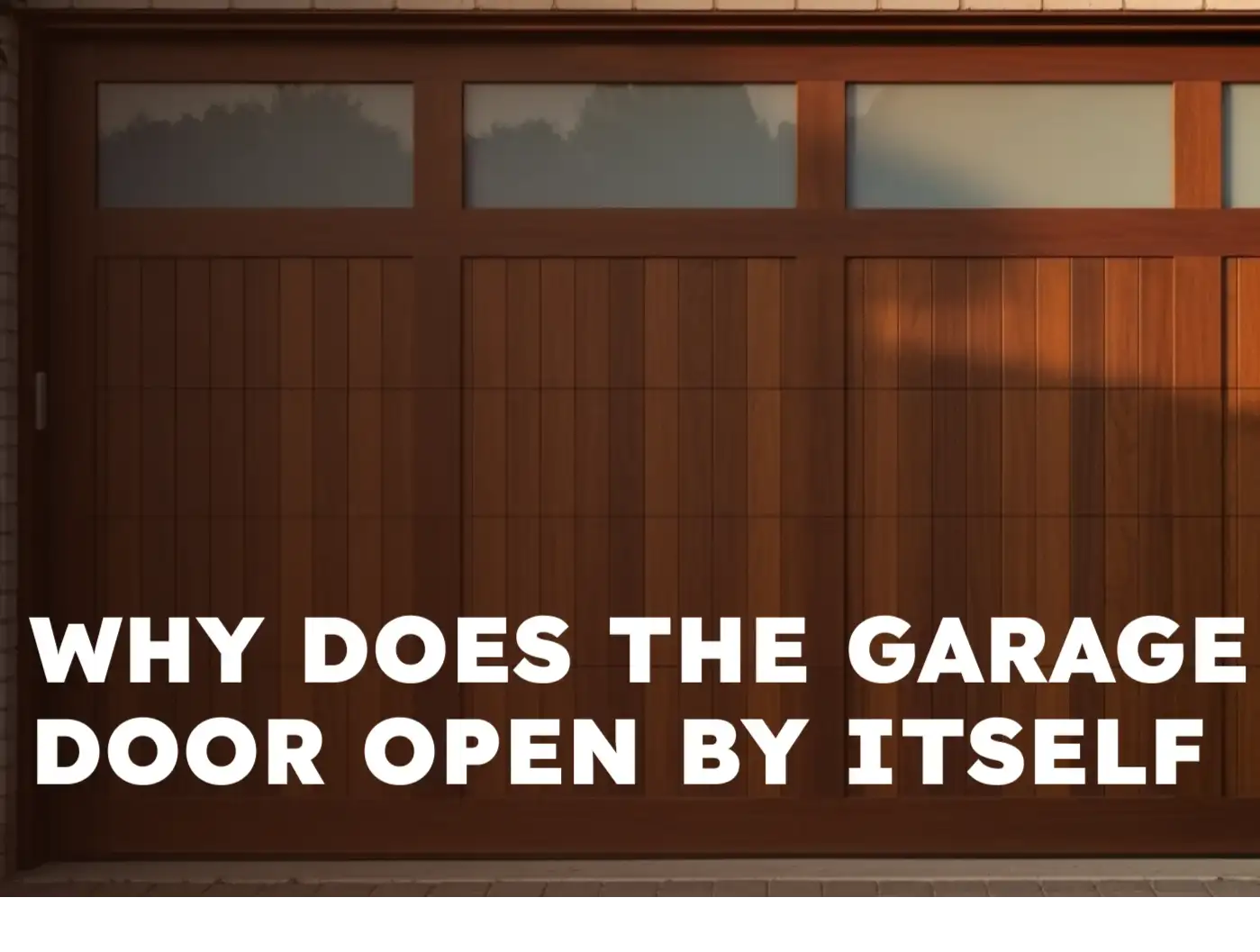Why Is My Garage Door Squeaking: And How to Fix It
Published: Nov 5, 2025
That grinding, shrieking noise every time you use your garage is more than just annoying — it’s your door asking for help. A garage door squeaks when opening for a few common reasons, usually related to friction or loose parts. Understanding how to fix a squeaky garage door often comes down to simple maintenance you can perform yourself. This guide will walk you through the steps to quiet that noise. Should you find the problem is more complex, the team at Up & Down Garage Doors is always here to help.
Common Causes: Why Is My Garage Door So Loud?
A garage door creaking sound is almost always a sign of friction. Metal parts that are supposed to move smoothly are grinding against each other. Understanding how often to service garage doors is key to preventing these issues before they start. Before you try any fixes, you need to know the cause.
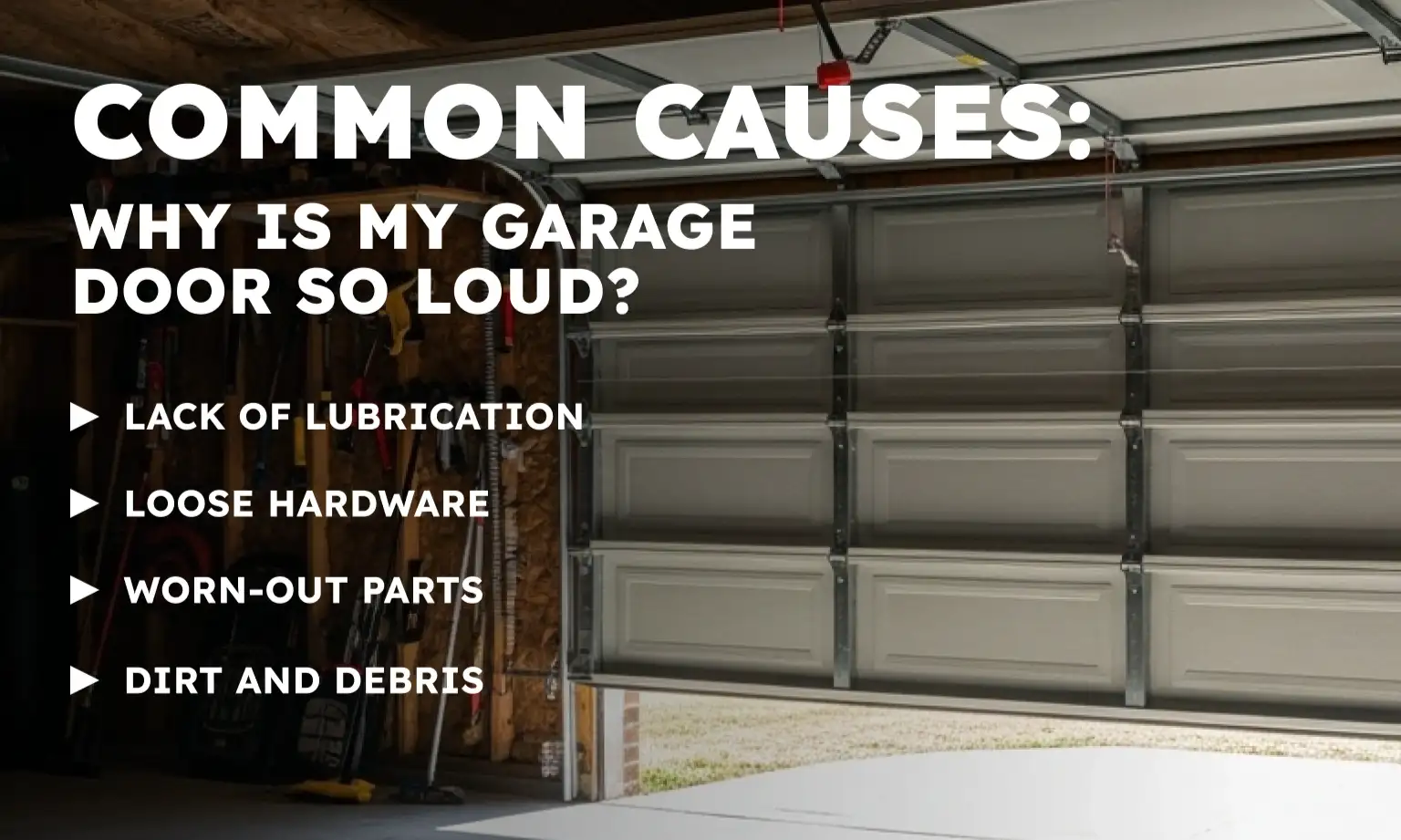
- Lack of Lubrication: This is the most common culprit. Moving parts like hinges, rollers, and springs need regular lubrication to operate smoothly.
- Loose Hardware: Vibrations from daily use can loosen the nuts, bolts, and brackets over time, causing parts to rattle and squeak.
- Worn-Out Parts: Old or damaged rollers, especially, can stop rolling and start scraping. These are often the cause of squeaky garage door rollers.
- Dirt and Debris: Grime in the tracks or on the hardware can clog moving parts and cause noise.

How to Fix a Squeaky Garage Door: A Step-by-Step Guide
Ready to fix a noisy garage door? Follow these steps carefully. Before you begin, disconnect the automatic garage door opener to work on the door manually and safely.
Step 1: Tighten All Hardware
First, visually inspect all your hardware. Look at the hinges and the brackets that hold the tracks. Use a socket wrench to gently tighten any visible nuts and bolts. Make them snug, but be careful not to overtighten, as this can strip the bolts or damage the door.
Step 2: Clean the Tracks and Components
Use a cloth or broom to wipe away any dirt, cobwebs, and debris from the garage door tracks. It is important not to lubricate the inside of the tracks themselves. This can attract more dirt and make the problem worse over time. A clean track is all your rollers need.
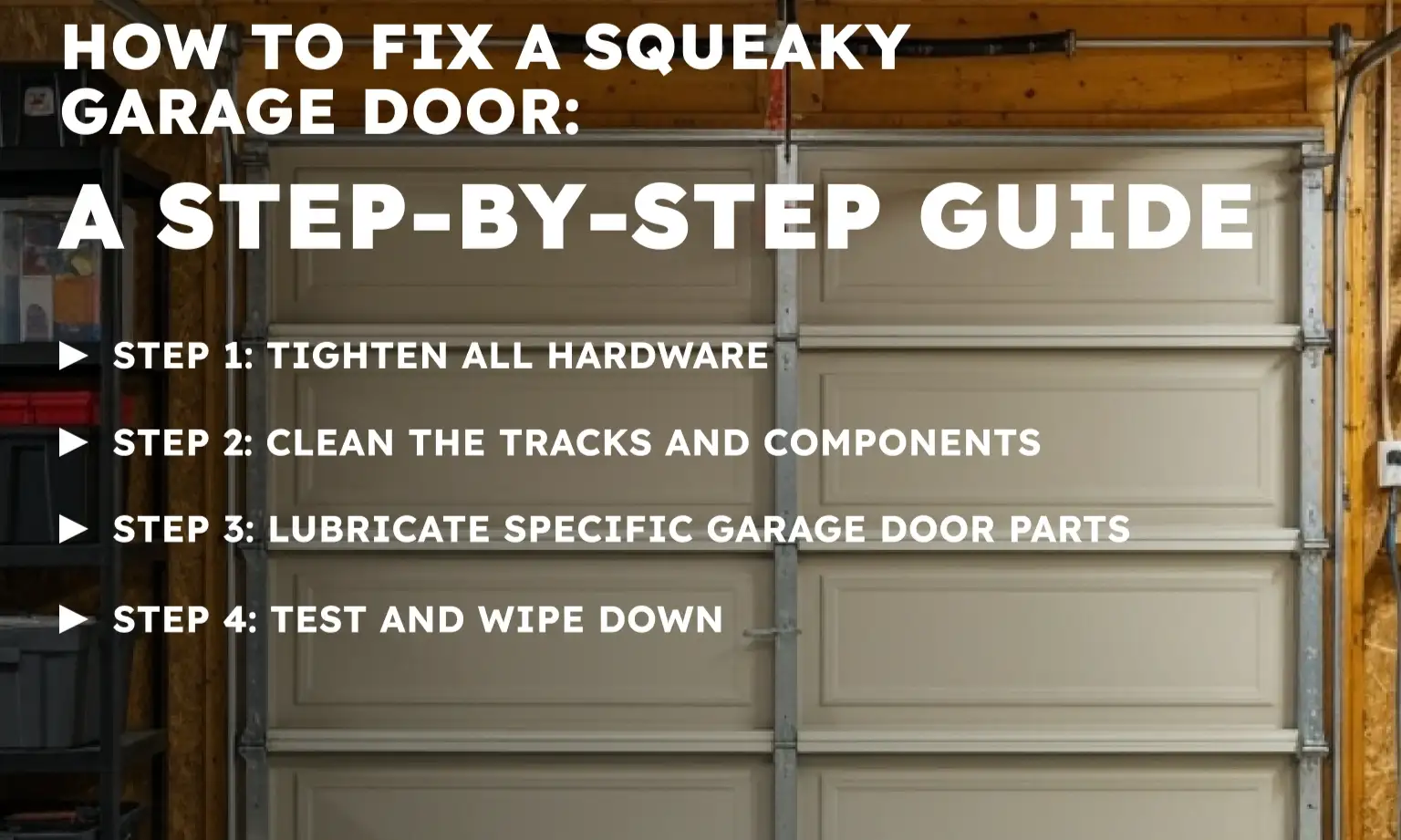
Step 3: Lubricate Specific Garage Door Parts
This is the most important step for a quiet door. You must use a lubricant specifically designed for garage doors, such as a white lithium grease or a silicone-based spray. Do not use common household degreasers, as they can strip away existing grease and attract dust. Here is how to lubricate a garage door correctly:
- Hinges: Apply lubricant to the pins and any moving metal-on-metal parts of the hinges.
- Rollers: Be careful with this part. For metal rollers, spray the ball bearings inside. Avoid spraying the wheel itself (the part that touches the track). Nylon rollers are often self-lubricating and may not need this. For a detailed walkthrough, see our guide on how to lubricate garage door rollers.
- Torsion Spring: Lightly coat the entire torsion spring above the door. This helps reduce noise and prevent rust.
- Opener Rail: If you have a chain-drive opener, lubricate the chain. For a screw-drive, apply a little lubricant to the rail.
Step 4: Test and Wipe Down
After applying the lubricant, manually open and close the door several times. This helps work the lubricant into all the moving parts. You should hear the noise lessen. Once finished, take a clean, dry cloth and wipe away any excess lubricant. This prevents it from dripping onto your car or the floor.

When DIY Squeaky Garage Door Fixes Aren’t Enough
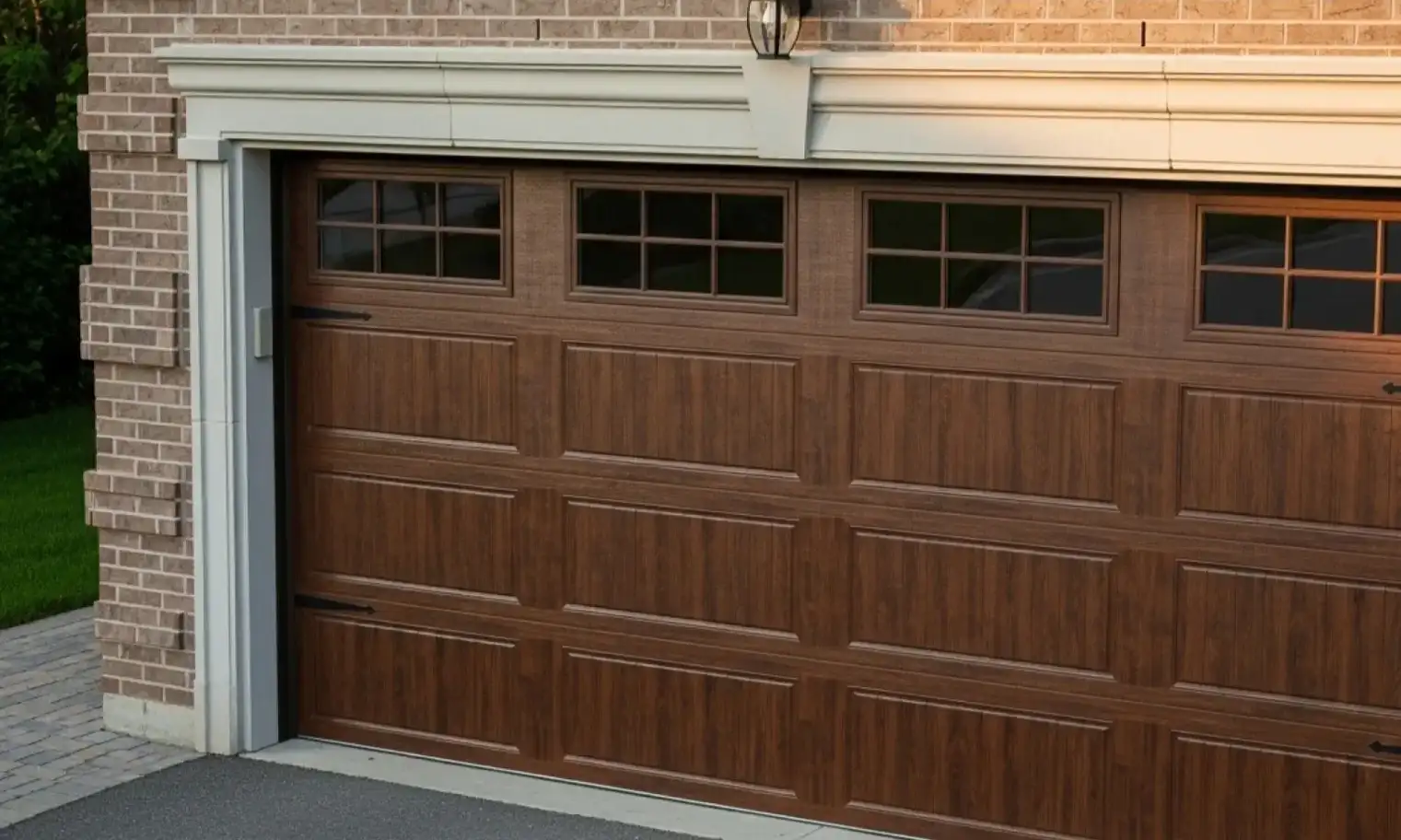
Sometimes, lubrication is not enough. If you’ve followed these steps and the door is still loud, or if you notice a loud garage door creaking sound or popping, it could be a sign of a bigger problem. You may have squeaky garage door rollers that are broken and need replacement, or your spring may be binding. These are clear signs your garage door needs a tune-up from a professional. Trying to replace complex parts like springs or cables yourself can be very dangerous. This is where professional garage door repair becomes essential. At Up & Down Garage Doors, we handle these complex issues safely and quickly.

Your Professional Fix: When to Call Up & Down Garage Doors
A quiet garage door is a happy one. Performing this simple garage door maintenance check every six months can prevent most noises. By tightening hardware and applying the right lubricant, you can solve most squeaks yourself. However, if the noise persists, don’t risk your safety. That’s when you need professional garage door repair & maintenance. The trusted team at Up & Down Garage Doors can safely diagnose and fix the problem, ensuring your door runs silently and reliably. Contact us today for a professional service check.
Frequently Asked Questions
Why does my garage door squeak when opening?
This is usually caused by friction from metal parts, like hinges and rollers, that need lubrication, or from loose hardware that needs tightening.
What is the best lubricant for a garage door?
Always use a silicone-based spray or white lithium grease specifically made for garage doors.
How often should garage doors be serviced?
We recommend a professional service once a year, with a simple lubrication and tightening check by you every six months.
Can I use a household degreaser to fix a noisy garage door?
No, you should not. These products can strip away necessary grease and attract dirt, making the problem worse in the long run.
What does a garage door creaking sound mean?
A garage door creaking sound almost always indicates metal-on-metal friction. This is a clear sign that parts like your hinges or springs are dry and in need of lubrication.
You may also like
